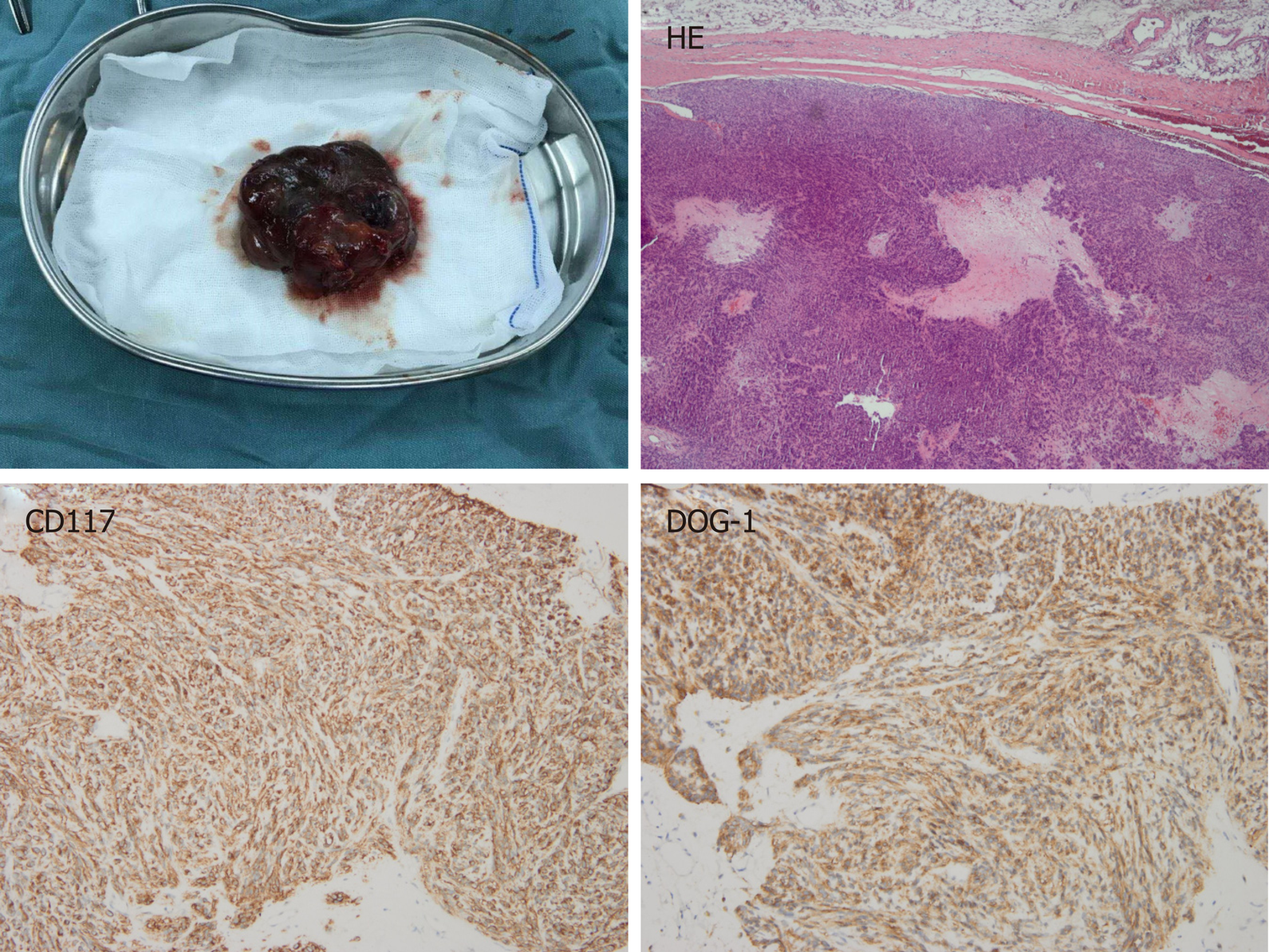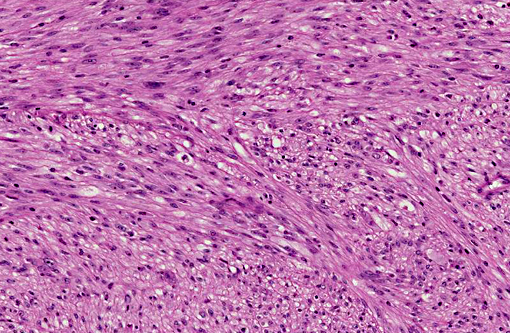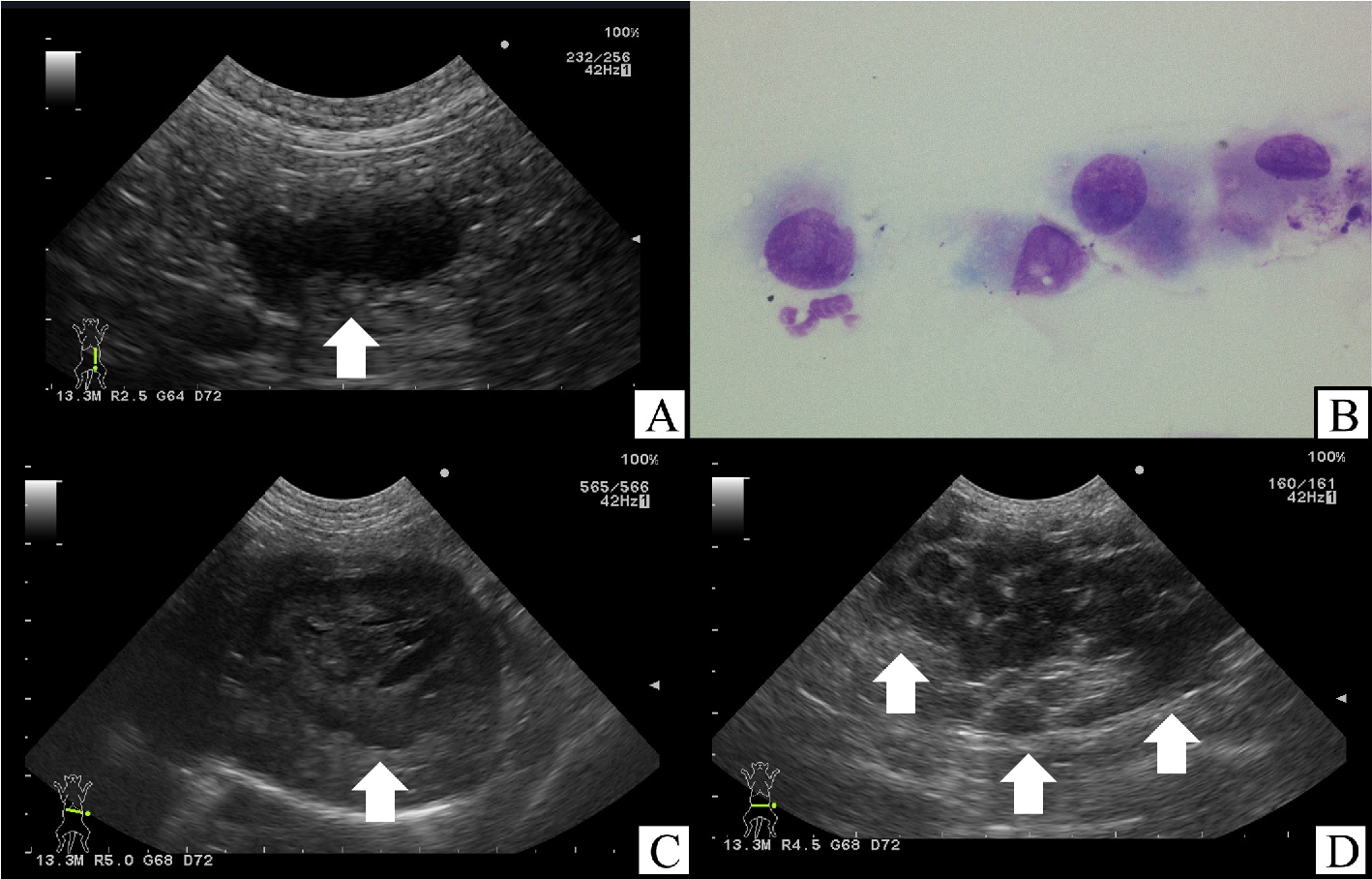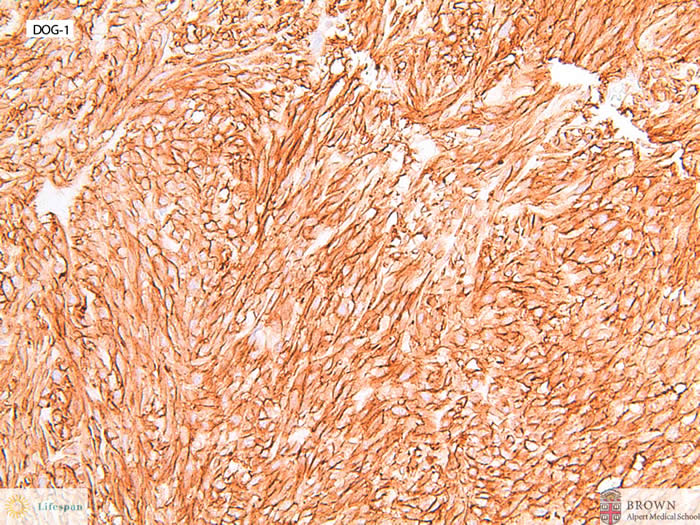Your Gastrointestinal stromal tumor dog images are ready. Gastrointestinal stromal tumor dog are a topic that is being searched for and liked by netizens today. You can Download the Gastrointestinal stromal tumor dog files here. Download all free images.
If you’re looking for gastrointestinal stromal tumor dog pictures information connected with to the gastrointestinal stromal tumor dog keyword, you have pay a visit to the ideal site. Our website frequently provides you with suggestions for seeing the maximum quality video and image content, please kindly surf and locate more informative video articles and graphics that match your interests.
Gastrointestinal Stromal Tumor Dog. A Histopathologic Immunohistochemical and Molecular Genetic Study of 50 Cases D. Gastrointestinal Stromal Tumor. Gastrointestinal stromal tumors GISTs are uncommon intestinal neoplasms in the dog. Literature regarding adjunctive therapy for GISTs in dogs is sparse.
 Scielo Brasil Primary Nonlymphoid Gastrointestinal Neoplasms In Dogs In Rio Grande Do Sul Primary Nonlymphoid Gastrointestinal Neoplasms In Dogs In Rio Grande Do Sul From scielo.br
Scielo Brasil Primary Nonlymphoid Gastrointestinal Neoplasms In Dogs In Rio Grande Do Sul Primary Nonlymphoid Gastrointestinal Neoplasms In Dogs In Rio Grande Do Sul From scielo.br
Gastrointestinal stromal tumors GISTs are the most common 80 mesenchymal tumors of the alimentarycanal accounting for less than 1 of all gastrointestinal tumors and about 5 all sarcomas with relative incidence in Egypt about 25 of all gastrointestinal tumors and 03 of all malignancies. Gastrointestinal stromal tumours arise from the neoplastic transformation of the intestinal pacemaker cells or the intestinal cells of Cajal The intestinal cells of Cajal are c-kit positive and indeed c-kit dependent. However the location also depends on the type of tumor. Common clinical signs in dogs with GIST include lethargy anorexia and diarrhea and abdominal distension due to tumors can be also observed 2 15. Gastrointestinal stromal tumors GISTs start in very early forms of special cells in the wall of the GI tract called the interstitial cells of Cajal ICCs. The most common intestinal cancer in cats is lymphoma.
With gastrointestinal stromal tumors approximately 30 will spread to other parts of the body.
The most common intestinal cancer in cats is lymphoma. Gastrointestinal stromal tumor GIST is submucosal neoplasm that is thought to be of Cajal cell origin 15 16. Fifty canine gastrointestinal GI mesenchymal tumors were examined to determine the occurrence of leiomyomas LM and GI stromal tumors and to compare their clinicopathologic features. In people this type of tumor responds to a type of chemotherapy that uses what is called c-KIT inhibitors. Intestinal tumors occur in older dogs median age 10 years. With gastrointestinal stromal tumors approximately 30 will spread to other parts of the body.
 Source: biotium.com
Source: biotium.com
Surgery alone can result in a cure if a tumor has not spread and if it can be easily removed. Gastrointestinal stromal tumors GISTs leiomyomas and leiomyosarcomas are common mesenchymal neoplasms in the gastrointestinal GI tract of dogs. High-risk GISTs in humans respond to tyrosine kinase inhibition in the adjuvant setting. Mast cell tumor gastrointestinal stromal tumor GIST carcinoid and rarely plasma cell tumor or hemangiosarcoma. As previously diagnosed smooth muscle tumors of the canine GI tract are increasingly.
 Source: wjgnet.com
Source: wjgnet.com
Skeinoid fibers if present are irregular globular and have prominent retraction. Gastrointestinal stromal tumors GISTs are uncommon intestinal neoplasms in the dog. More research is needed on this type of chemotherapy in dogs. Gastrointestinal stromal tumor GIST a very frequent type of gastrointestinal mesenchymal tumor is defined by KIT-positive mesenchymal-origin spindle-shaped cell tumors in the gastrointestinal. Malignant tumors have the potential to spread to many areas of the body including lymph nodes other.
 Source: researchgate.net
Source: researchgate.net
Gastrointestinal stromal tumors GISTs are common mesenchymal neoplasms in the gastrointestinal tract of humans and dogs. This study evaluated the role of c-KIT in canine GISTs. Intestinal tumors occur in older dogs median age 10 years. Adenocarcinoma leiomyosarcoma and lymphoma are the most common canine intestinal tumors. As previously diagnosed smooth muscle tumors of the canine GI tract are increasingly.
 Source: semanticscholar.org
Source: semanticscholar.org
Gastrointestinal stromal tumors GISTs are uncommon intestinal neoplasms in the dog. Specifically we investigated activating mutations in exons 8 9 11 13 and 17 of c-KIT and exons 12 14 and 18. Mast cell tumor gastrointestinal stromal tumor GIST carcinoid and rarely plasma cell tumor or hemangiosarcoma. Gastrointestinal stromal tumor GIST a very frequent type of gastrointestinal mesenchymal tumor is defined by KIT-positive mesenchymal-origin spindle-shaped cell tumors in the gastrointestinal. This study evaluated the role of c-KIT in canine GISTs.
 Source: cell.com
Source: cell.com
CD117 KIT 74-95 DOG1 87-95 positive. With gastrointestinal stromal tumors approximately 30 will spread to other parts of the body. Little is known about the pathogenesis of these tumors. Skeinoid fibers if present are irregular globular and have prominent retraction. Gastrointestinal tumors can occur anywhere in the gastrointestinal tract but stomach tumors in dogs tend to be more common.
 Source: oncohemakey.com
Source: oncohemakey.com
Gastrointestinal stromal tumors GISTs are common mesenchymal neoplasms in the gastrointestinal tract of humans and dogs. With gastrointestinal stromal tumors approximately 30 will spread to other parts of the body. Gastrointestinal stromal tumours arise from the neoplastic transformation of the intestinal pacemaker cells or the intestinal cells of Cajal The intestinal cells of Cajal are c-kit positive and indeed c-kit dependent. The most common intestinal cancer in cats is lymphoma. Common clinical signs in dogs with GIST include lethargy anorexia and diarrhea and abdominal distension due to tumors can be also observed 2 15.
 Source: ar.iiarjournals.org
Source: ar.iiarjournals.org
Gastrointestinal stromal tumors GISTs are uncommon intestinal neoplasms in the dog. As previously diagnosed smooth muscle tumors of the canine GI tract are increasingly. Incidental diagnosis of a spindle cell type gastrointestinal stromal tumor in a dog with ethylene glycol intoxication. ICCs are sometimes called the pacemakers of the GI tract because they signal the muscles in the GI tract to contract to move food and liquid along. Intestinal tumors occur in older dogs median age 10 years.
Source: encrypted-tbn0.gstatic.com
A Histopathologic Immunohistochemical and Molecular Genetic Study of 50 Cases D. In 2003 Frost and Miettinen described leiomyosarcoma and GIST in dogs and provided a framework for their discrimination. Incidental diagnosis of a spindle cell type gastrointestinal stromal tumor in a dog with ethylene glycol intoxication. As previously diagnosed smooth muscle tumors of the canine GI tract are increasingly. Intestinal tumors occur in older dogs median age 10 years.
Source:
Mast cell tumor gastrointestinal stromal tumor GIST carcinoid and rarely plasma cell tumor or hemangiosarcoma. Adenocarcinomas for example are among the most common gastrointestinal tumors in dogs and usually develop in the colon rectum and stomach. Gastrointestinal stromal tumors GISTs start in very early forms of special cells in the wall of the GI tract called the interstitial cells of Cajal ICCs. Expression of CD117 DOG1 and PKCθ was investigated immunohistochemically in a series of 99 paraffin-embedded GISTs in order to determine the sensitivity and diagnostic value of. Little is known about the pathogenesis of these tumors.
 Source: researchgate.net
Source: researchgate.net
Gastrointestinal stromal tumors GISTs are uncommon intestinal neoplasms in the dog. Gastrointestinal stromal tumours arise from the neoplastic transformation of the intestinal pacemaker cells or the intestinal cells of Cajal The intestinal cells of Cajal are c-kit positive and indeed c-kit dependent. Santos Department of Comparative Pathobiology Purdue University College of Veterinary Medicine 625 Harrison Street West Lafayette IN 47906 USA. Less common tumor types include leiomyoma other sarcomas GISTs carcinoids plasma cell tumors and mast cell tumors. Adenocarcinomas for example are among the most common gastrointestinal tumors in dogs and usually develop in the colon rectum and stomach.
 Source: researchgate.net
Source: researchgate.net
Intestinal tumors occur in older dogs median age 10 years. Gastrointestinal Stromal Tumor. In 2003 Frost and Miettinen described leiomyosarcoma and GIST in dogs and provided a framework for their discrimination. Common clinical signs in dogs with GIST include lethargy anorexia and diarrhea and abdominal distension due to tumors can be also observed 2 15. As previously diagnosed smooth muscle tumors of the canine GI tract are increasingly.
 Source: askjpc.org
Source: askjpc.org
Gastrointestinal stromal tumors GISTs are the most common 80 mesenchymal tumors of the alimentarycanal accounting for less than 1 of all gastrointestinal tumors and about 5 all sarcomas with relative incidence in Egypt about 25 of all gastrointestinal tumors and 03 of all malignancies. High-risk GISTs in humans respond to tyrosine kinase inhibition in the adjuvant setting. Gastrointestinal stromal tumors GISTs leiomyomas and leiomyosarcomas are common mesenchymal neoplasms in the gastrointestinal GI tract of dogs. Gastrointestinal stromal tumors GISTs are uncommon intestinal neoplasms in the dog. A Histopathologic Immunohistochemical and Molecular Genetic Study of 50 Cases D.
 Source: researchgate.net
Source: researchgate.net
Adenocarcinoma leiomyosarcoma and lymphoma are the most common canine intestinal tumors. Skeinoid fibers if present are irregular globular and have prominent retraction. Small Intestinal Dog Tumors. High-risk GISTs in humans respond to tyrosine kinase inhibition in the adjuvant setting. Gastrointestinal stromal tumors GISTs start in very early forms of special cells in the wall of the GI tract called the interstitial cells of Cajal ICCs.
 Source: researchgate.net
Source: researchgate.net
Gastrointestinal stromal tumor GIST a very frequent type of gastrointestinal mesenchymal tumor is defined by KIT-positive mesenchymal-origin spindle-shaped cell tumors in the gastrointestinal. Primary intestinal tumors account for less than 10 of all neoplasms in dogs and may be of epithelial neu-roendocrine hematopoietic or mesenchymal origin1 Gastrointestinal stromal tumors GIST are a specific group of mesenchymal neoplasms that have been reported in. CD117 KIT 74-95 DOG1 87-95 positive. In people this type of tumor responds to a type of chemotherapy that uses what is called c-KIT inhibitors. Gastrointestinal stromal tumors GISTs start in very early forms of special cells in the wall of the GI tract called the interstitial cells of Cajal ICCs.
 Source: thelancet.com
Source: thelancet.com
Incidental diagnosis of a spindle cell type gastrointestinal stromal tumor in a dog with ethylene glycol intoxication. Gastrointestinal stromal tumors GISTs are common mesenchymal neoplasms in the gastrointestinal tract of humans and dogs. Small Intestinal Dog Tumors. The most common intestinal cancer in cats is lymphoma. Little is known about the pathogenesis of these tumors.
 Source: semanticscholar.org
Source: semanticscholar.org
Little is known about the pathogenesis of these tumors. This study evaluated the role of c-KIT in canine GISTs. Specifically we investigated activating mutations in exons 8 9 11 13 and 17 of c-KIT and exons 12 14 and 18. In 2003 Frost and Miettinen described leiomyosarcoma and GIST in dogs and provided a framework for their discrimination. Gastrointestinal stromal tumors GISTs are common mesenchymal neoplasms in the gastrointestinal tract of humans and dogs.
 Source: scielo.br
Source: scielo.br
Spindled or epithelioid cytoplasm. Malignant tumors have the potential to spread to many areas of the body including lymph nodes other. Santos Department of Comparative Pathobiology Purdue University College of Veterinary Medicine 625 Harrison Street West Lafayette IN 47906 USA. Common clinical signs in dogs with GIST include lethargy anorexia and diarrhea and abdominal distension due to tumors can be also observed 2 15. In 2003 Frost and Miettinen described leiomyosarcoma and GIST in dogs and provided a framework for their discrimination.
 Source: brown.edu
Source: brown.edu
Gastrointestinal stromal tumors GISTs are common mesenchymal neoplasms in the gastrointestinal tract of humans and dogs. High-risk GISTs in humans respond to tyrosine kinase inhibition in the adjuvant setting. Common clinical signs in dogs with GIST include lethargy anorexia and diarrhea and abdominal distension due to tumors can be also observed 2 15. SMALL INTESTINAL TUMORS Incidence and Signalment Adenocarcinoma leiomyosarcoma and lymphoma are the most common canine intestinal tumors. Less common tumor types include leiomyoma other sarcomas GISTs carcinoids plasma cell tumors and mast cell tumors.
This site is an open community for users to share their favorite wallpapers on the internet, all images or pictures in this website are for personal wallpaper use only, it is stricly prohibited to use this wallpaper for commercial purposes, if you are the author and find this image is shared without your permission, please kindly raise a DMCA report to Us.
If you find this site serviceableness, please support us by sharing this posts to your preference social media accounts like Facebook, Instagram and so on or you can also save this blog page with the title gastrointestinal stromal tumor dog by using Ctrl + D for devices a laptop with a Windows operating system or Command + D for laptops with an Apple operating system. If you use a smartphone, you can also use the drawer menu of the browser you are using. Whether it’s a Windows, Mac, iOS or Android operating system, you will still be able to bookmark this website.







